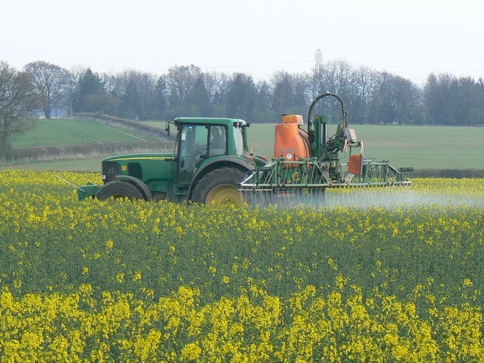 A new study, commissioned by CIEL, ECOS, and the Oeko-Institute shows that most of the information made available by the Sponsorship Testing Programme of the Organisation for Economic Co-operation and Development (OECD) is of little to no value for the regulatory risk...
A new study, commissioned by CIEL, ECOS, and the Oeko-Institute shows that most of the information made available by the Sponsorship Testing Programme of the Organisation for Economic Co-operation and Development (OECD) is of little to no value for the regulatory risk...
 A new peer-reviewed study on food grade titanium dioxide (TiO2) containing nanoparticles confirms that that there are serious potential health risks associated with consuming these particles and they should not be permitted in our food. The study undermines the...
Friends of the Earth has welcomed the US Food and Drug Administration’s ban on antibacterial soaps containing ingredients such as triclosan because of evidence they can pose health risks, such as bacterial resistance. Louise Sales from Friends of the Earth’s Emerging...
A new peer-reviewed study on food grade titanium dioxide (TiO2) containing nanoparticles confirms that that there are serious potential health risks associated with consuming these particles and they should not be permitted in our food. The study undermines the...
Friends of the Earth has welcomed the US Food and Drug Administration’s ban on antibacterial soaps containing ingredients such as triclosan because of evidence they can pose health risks, such as bacterial resistance. Louise Sales from Friends of the Earth’s Emerging...
 The first multi-generational study looking at the impacts of cerium oxide nanoparticles on plant growth has found that plants are more vulnerable to toxic nanoparticles if their parents were grown in contaminated soil. The study by Ma et al. over three generations of...
The first multi-generational study looking at the impacts of cerium oxide nanoparticles on plant growth has found that plants are more vulnerable to toxic nanoparticles if their parents were grown in contaminated soil. The study by Ma et al. over three generations of...
 Our food regulator Food Standards Australia New Zealand (FSANZ) has misrepresented the findings of two independent reports it commissioned on the safety of nanomaterials in food and food packaging. The reports were supposed to have been completed by June 2015 but were...
Our food regulator Food Standards Australia New Zealand (FSANZ) has misrepresented the findings of two independent reports it commissioned on the safety of nanomaterials in food and food packaging. The reports were supposed to have been completed by June 2015 but were...






